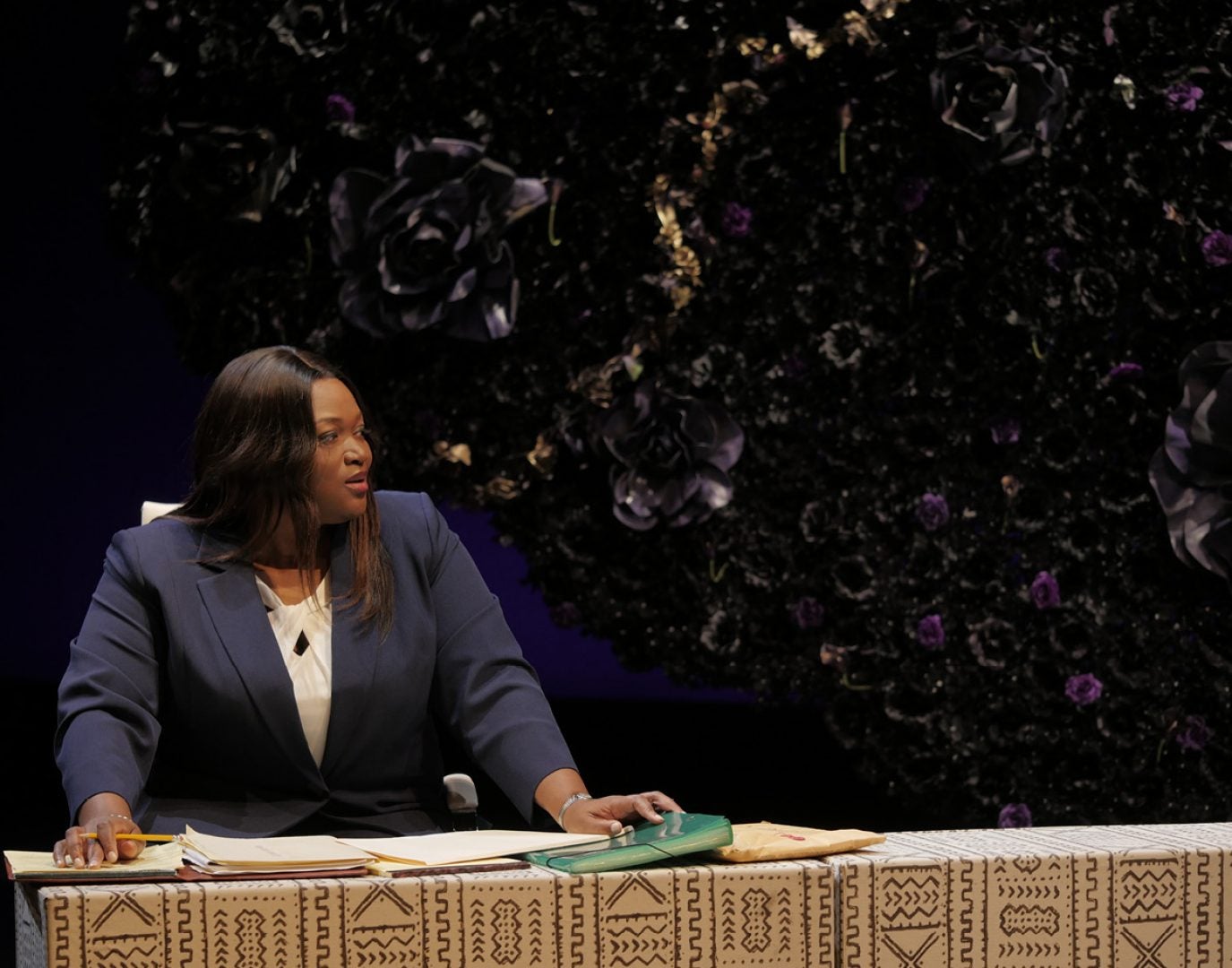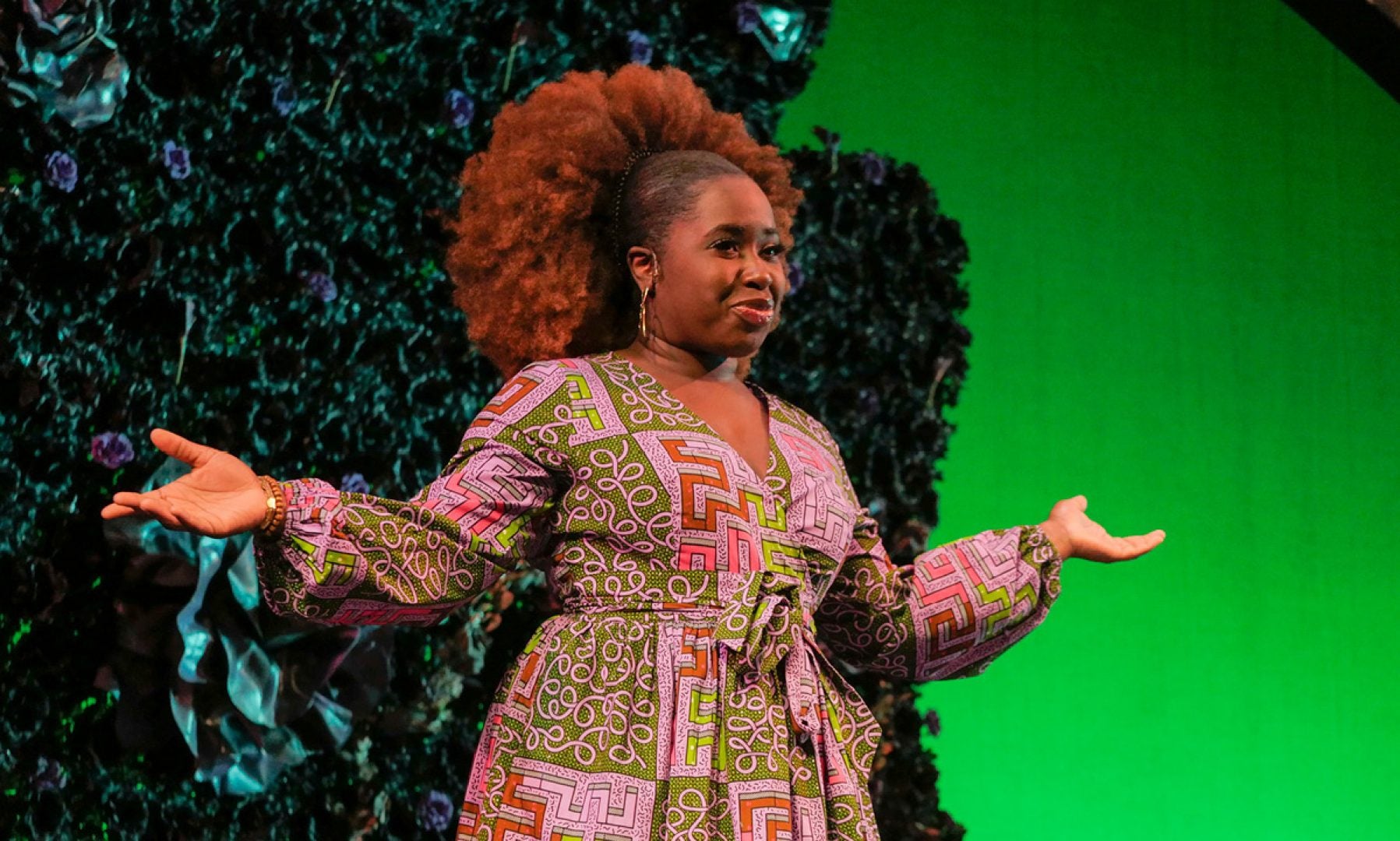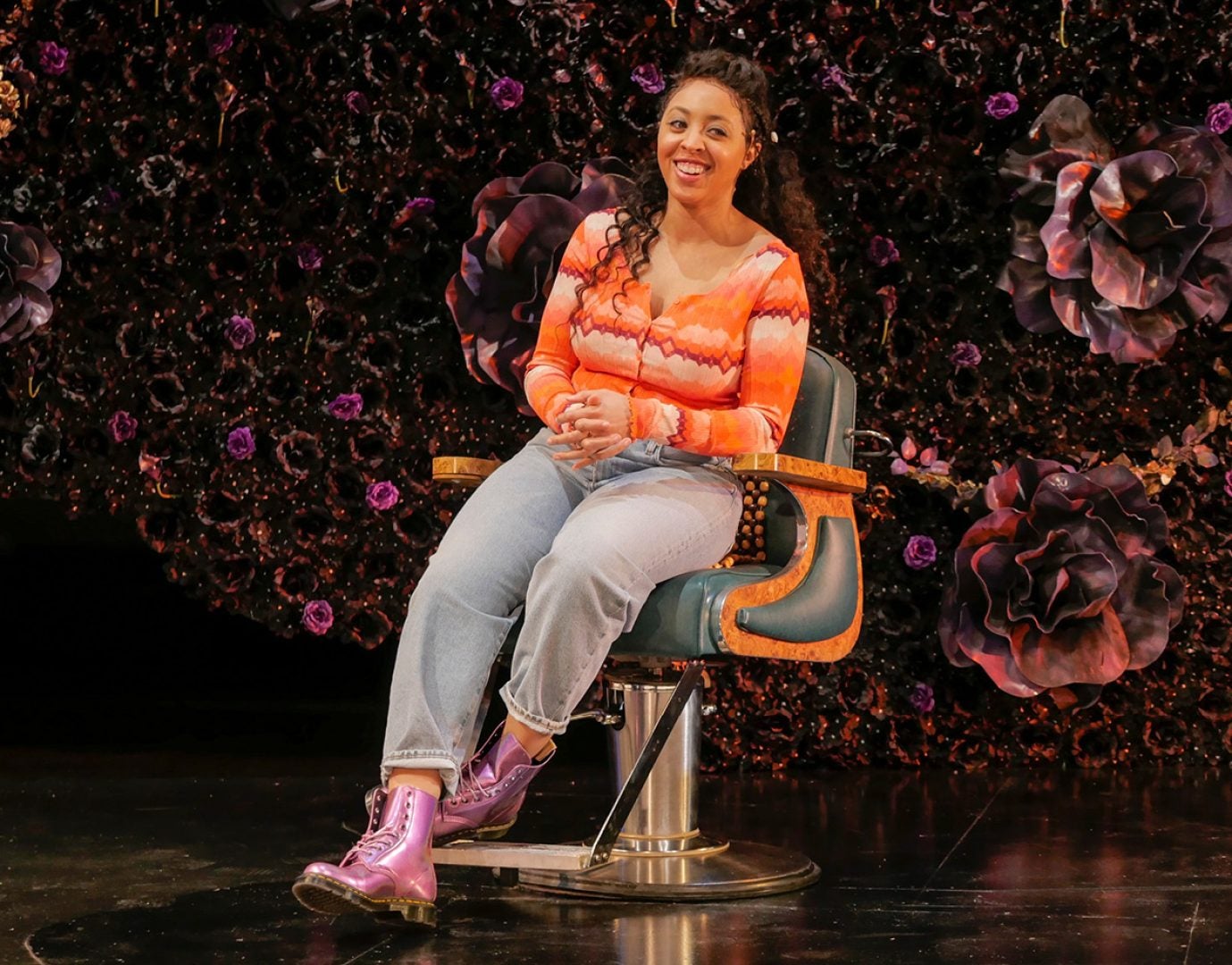
Keli Goff is bringing The Glorious World of Crowns, Kinks and Curls to the Baltimore Center Stage. The journalist, screenwriter, and playwright is using her work experience to reveal how hair affects the lives and careers of Black women.
“My career was spent doing cable news appearances, especially during the Obama era,” Goff tells ESSENCE. “Hair and your makeup become a big part of your life, a much bigger part than I had ever planned.”
Decades of hot-comb scented respectability politics merged with sheath dresses and sleek bobs to strap Goff to the salon chair, yet “The straight bouncy kind of helmet hair,” wasn’t for her. “That’s not how I walk around in real life,” she explains.

It wasn’t long before Goff abandoned the “news Barbie costume,” not only because it didn’t suit her personal aesthetic, but it also hindered her from doing her job. “I actually felt at times I was spending much more time worrying about how my hair looked than my time I wanted to be spending just on writing good stories and I didn’t love that,” she says.
After she left the field, a colleague admitted they’d heard comments about her decision to ditch the extensions. One hairdresser reportedly remarked, “I can’t believe Kelli would come in with her hair like that.”
Though Goff was never expressly instructed to wear weaves, she gleaned what was appropriate by observation. “It’s in the ether of who they put on. You see who is getting the opportunities,” she says. “No one usually sits a little Black girl down and goes, ‘Hey, you know that people think that your features and your hair is ugly.’ Right? That’s not what’s happening.”

Enter Goff’s play which is a collection of monologues in the tradition of Ntozake Shange’s For Colored Girls Who Have Considered Suicide / When the Rainbow Is Enuf and Anna Deavere Smith’s Fires in the Mirror. It shines a light on othering in spaces from the boardroom to the church pew and is directed by Bianca Laverne Jones and stars Stori Ayers, Awa Sal Secka, and Shayna Small. “It feels amazing to be able to put stories on stage that represent and speak to the women in my life, that I haven’t had the opportunity to tell their stories in other ways,” says Goff. “I know I’m not the only Black woman who has this experience where I felt hair defined a major moment in my life in a way that I wish it hadn’t.”
The play’s acts depict various scenarios to that point including an African mother who takes her small biracial daughter to wait outside to watch Prince Harry and Meghan Markle wed.
“We all know how hard it is to get women of color depicted on screen and how to see them depicted fully and authentically and with nuance,” says Goff. “Getting our characters on screen is a challenge and then getting them depicted with the fullness and the richness that we believe they deserve is a challenge. So having a play where every character was a Black woman from different walks of life, different class backgrounds, different skin tones, different hair textures, different ages. It meant the world to me.”
Cases of anchors going viral for daring to wear their natural hair might imply it’s commonplace on camera but Goff reminds us women wearing their own hair being newsworthy proves we have a long way to go. “I am so grateful to see it changing, you know, with some of the people on air now because that’s sending a message to the next girl who’s going to come behind them. The person who’s in journalism school right now. We still hear people talking about it, right? That’s why it makes the news when someone wears the braids as an anchor because it’s still so uncommon.”

That lack of visibility impacted her career heavily. “I felt my whole future was living or dying or riding on whether or not I was wearing hair extensions,” she says. As it turns out, her instincts were right, though she couldn’t prove it until much later. “We don’t always know until after the fact that we were discriminated against or that someone was judging us.”
Goff worked with Baltimore Center Stage artistic director Stephanie Ybarra, who used her theatre network, to ensure no one working on her production would feel left out at work the way she once did. “She was the one who was very focused on making sure that every single major creative role was filled by a Black woman,” Goff explains. “That was deeply important to her.”
As for her vision, Goff adds, “Every version and every version of Black womanhood, regardless of your skin texture, your hair texture, or where you come from is represented in some degree in this play. That was my great hope when I wrote it.”
The Glorious World of Crowns, Kinks and Curls will be streaming through Sunday, May 2.